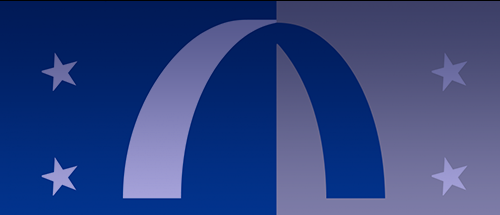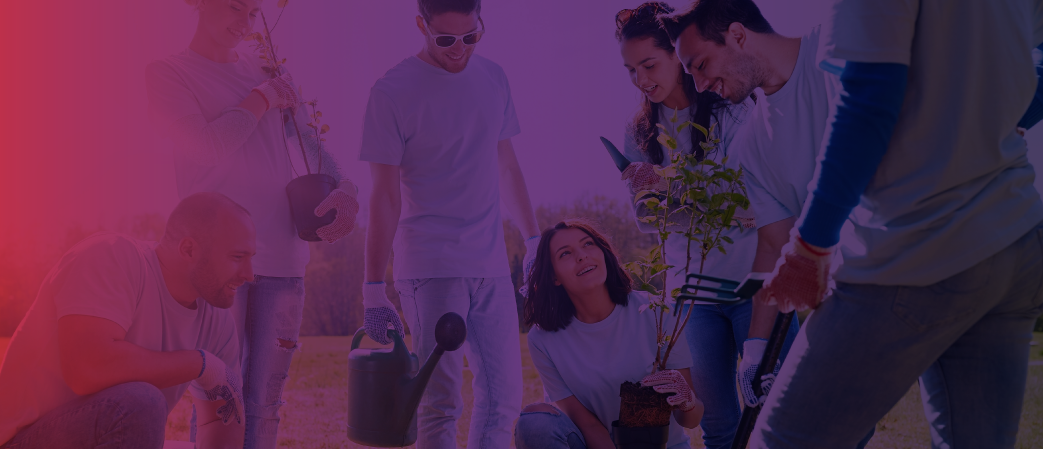EUROPEAN SOLIDARITY CORPS (ESC)
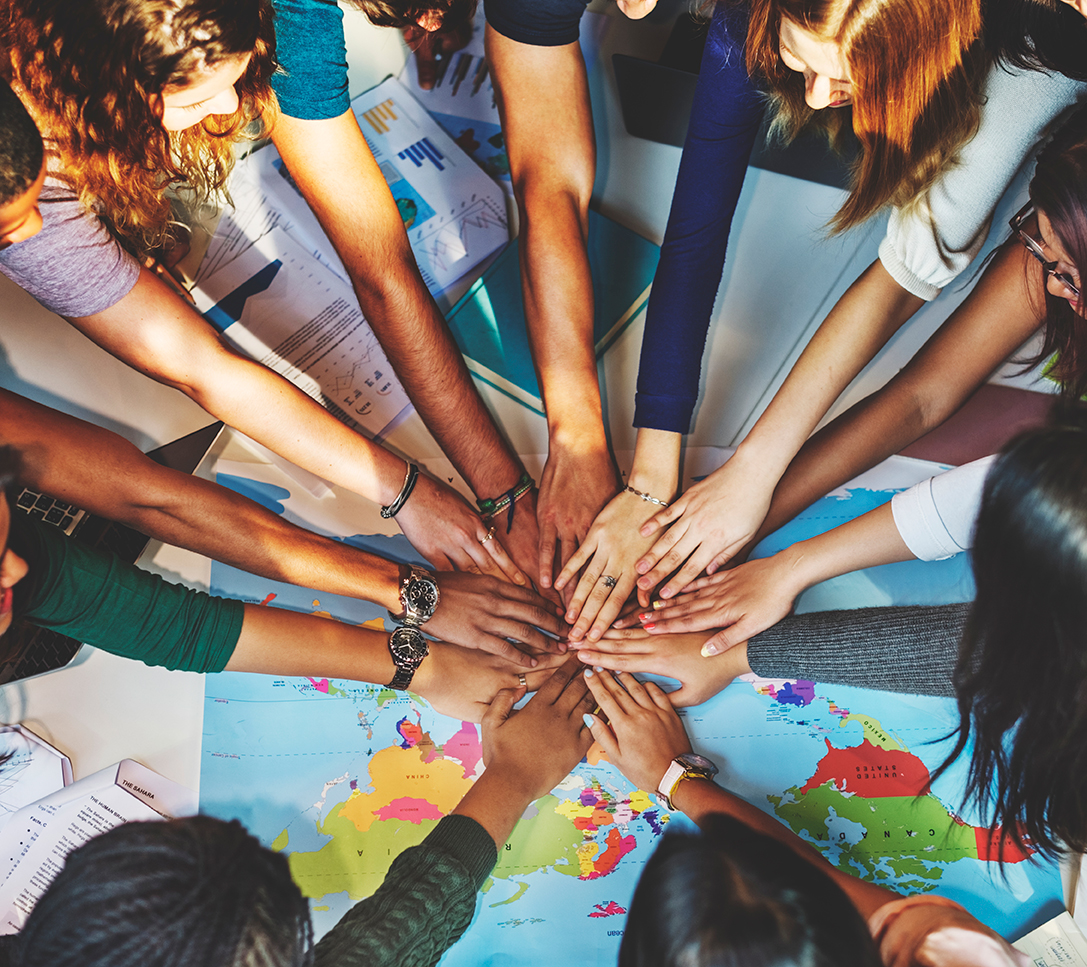
The European Solidarity Crops (ESC) is a new European Union initiative targeting to meet societal needs, creating opportunities for young people to volunteer, work or network in projects that benefit society in their home country or abroad, while promoting their personal, educational, social, civic and professional development.
ESC brings young people together to build a more inclusive society, support disadvantaged people and respond to societal challenges. The activities of the Programme that provides an inspiring and empowering experience for young people who want to help the community, learn and improve themselves, has a wide range from environment to health, sports to social inclusion, digital technologies to culture and humanitarian aid.
Along with encouraging young people to contribute to society, the Programme also provides opportunities for young people to gain invaluable experiences and develop new skills. The Programme is open to people aged 18 to 30 for volunteering and solidarity activities that deal with social challenges, and for people aged 18 to 35 for humanitarian aid activities.
Türkiye’s Participation in the Programme
Türkiye has been participating in the ESC Programme, which has been implemented as of 2019, from the very beginning.
The Programme participation agreement for the period of ESC 2021-2027 was signed on October 27 of 2021. Our participation entered into force after it was published in the Official Gazette on November 16th.
The national coordinator of the Programme is the Turkish National Agency.
Targets of the Programme

The ESC Programme aims to increase the skills and competencies of young people, to encourage participation in social solidarity activities of organizations, to respond to social needs and to strengthen societal solidarity, while creating opportunities for young people to work/volunteer in projects that pay regard to the benefit of society and support disadvantaged people.
The European Solidarity Corps will provide opportunities for more than 270,000 young people across Europe with a budget of 1 billion euros in the 2021-2027 period.
This new European Solidarity Corps pay regards to the European Union’s priorities.
Promoting Inclusion and Diversity: It aims to ensure that young people have equal access to the opportunities provided by the European Solidarity Corps.
Green Initiatives: It aims to promote environmentally sustainable and responsible behavior among participants and organizations as well as adopting green initiatives in all projects and activities.
Digital Transformation: It will support projects and activities that work to increase digital skills, promote digital literacy and understand the risks and opportunities of digital technology.
Participation in Democratic Processes: Along with civic participation, it also supports the participation of young people in democratic processes.
Protecting and Supporting of Health: It contributes to issues such as the impact of the COVID-19 epidemic and the protection and support of health that has been better understood how vital it is throughout the epidemic, and the recovery process after illness. The Programme aims to mobilize volunteers to support projects to address various health issues.
Period of 2021-2027
The new period ESC Programme, with a budget of 1.009 billion euros allocated for 2021-2027, will offer opportunities to help at least 270,000 young people across Europe to overcome societal and humanitarian challenges through volunteering or creating their own solidarity projects. The aim of the Programme is to be not only more inclusive, but also more digital and enviromental.
- Volunteering
- Solidarity Projects
- European Humanitarian Aid Action
- Volunteering Teams in High Priority Areas

How does European Solidarity Corps Work?
Young people aged 17-30 can register on the Young people aged 17-30 can register on the Participants aged 18 and over can receive invitations to participate in projects on solidarity by organizations that have access to the database. Also, these organizations can make project announcements on the portal to receive direct answers from young people.
Volunteering Projects
- Volunteering Projects provide young people aged 18-30 the opportunity to volunteer in a social project for 2 to 12 months.
- Volunteering activities are full-time (30-38 hours per week) and free support for the daily activities of the host organization for the benefit of the community.
- Through volunteering projects, young people can contribute to their educational, social and professional development at their home country or abroad by participating in individual volunteering activities or volunteer teams.
- Within the scope of volunteering projects, activities for the benefit of society are organized, such as participating in the restoration of a cultural heritage, raising awareness of environmental protection, or carrying out voluntary training activities in refugee camps.
Criteria for Application
Volunteering projects are open to individuals aged 18-30 legally residing in the ESC programme country or partner countries, regardless of graduation and language proficiency. Although 17-year-olds can enroll in the Programme, they cannot take part in any project until the age of 18.
For application
- After registering on the European Youth Portal
- Institutions and projects with volunteer invitations should be sought
- It is important for applicants to find a sender institution with a “Quality Certificate” from Türkiye before applying.
- Resume and motivation letter must be sent for the project of interest. Europass web-site can help to create a CV and motivation letter.
Volunteering projects are divided into two:
- Short-term volunteering (14-59 days excluding travel time) and
- Long-term volunteering (2-12 months excluding travel time)
Each volunteer is entitled to only 1 short-term + 1 long-term volunteer project.
Supports Provided to Young in Volunteering Projects
- Supporting Financially Limited Volunteers: the European Solidarity Corps in accordance with its principles attaches great importance to the support and participation of young people who have limited opportunities compared to their peers due to health problems, educational struggles, economic and geographical barriers and cultural differences, as well as problems due to religion, gender and age, or social and economic difficulties.
- Language Education Support: The European Solidarity Corps, which aims to ensure unity in diversity, provides free language education support for at least three months, through a youth worker in the host institution or a professional language course in the native language of the country within the scope of the project.
- Visa Support: All expenses during the visa process to go to the country where the project will take place, health insurance, and additionally, all expenses of provided that an application for a residence permit other than visa is required are covered.
- Pocket Money Support: Although it varies from country to country, apart from necessities such as daily accommodation, food, local transportation, etc. a certain amount of pocket money is also provided.
- Accommodation Support: Individuals participating in the project are offered accommodation in a volunteer home, dormitory or homestay by the host institution.
- Travel Support: Involves round-trip travel expenses to the country where the project will take place.
- Mentor Support: Participants have the opportunity to receive training before and after the projects. During the project, the participants are supported to set their goals and reach them through mentors.
Solidarity Projects
Solidarity Projects are projects implemented within the country between 2-12 months, where at least 5 young people come together, take responsibility and initiative to create positive changes for the society and environment they live in.
In case of participating in a long-term volunteering project first, the right to benefit from the Programme ends without using the short-term right. Young people who have participated in an Erasmus+ volunteering activity or European Voluntary Service programme cannot benefit from this programme. However, as an exception, young people who have benefited from European Voluntary Service or European Solidarity Crops volunteering activities for a maximum of two months can apply to volunteer activities once again, provided that the total duration does not exceed fourteen months.
- Solidarity projects are domestic solidarity activities developed and implemented by young people for a period of 2-12 months.
- These are the projects that at least 5 young people come together to target a specific issue and problem in their local community, take responsibility and develop them and implement their solutions to create positive change by revealing their solutions to this problem.
- Solidarity activities should be based on the principles of European Solidarity Corps, and should show the characteristics of dealing with issues that emphasize informal learning, entrepreneurial spirit and European added value (e.g. climate change, democratic participation, social integration, etc.).
- It is possible to bring together different actors and partners through solidarity projects targeting local problems and special groups in need.
- Participation in a solidarity project can also be the first step to become self-employed, to take part in non-governmental organizations, to participate in youth activities, or to establish a non-governmental organization (NGO).
Who can apply?
- A group of at least five young people aged 18-30 who legally reside in the Programme country and are members of the European Youth Portal can apply to solidarity projects.
- There is no maximum number of participants. One of the young people in the group can take the role of legal representative and send the application, as well as any public or private institution on behalf of the group that will carry out the project.
- Applications are made through e-forms published on the official website of the European Commission. The necessary information about the application forms and the application process can be found on the official website of the Turkish National Agency.
Benefits of joining in the ESC Programme for Young People
Young people with the projects they have realized or participated in:
- will have a Youthpass certificate that documents their participation at the end of the project they have volunteered for.
- will have the opportunity to live in another country and develop their language and cultural skills.
- will gain the ability to overcome difficulties and work in a team.
- can stay in touch with a wider community of former volunteers as part of the European Solidarity Corps community
- can also inspire other young people by sharing their experiences.
- can improve their personal, educational, social and professional skills by increasing their self-confidence and motivation to learn.
- can bring their own ideas to the organizations or local communities they volunteer and contribute to the multicultural identity of the organizations.
Would you like to learn more?
Check out the European Youth Portal discover more about the Programme.
The Programme is managed by the Turkish National Agency in Türkiye. You can also visit www.ua.gov.tr to learn the details of the Programme.
You can find the brochure of the Programme here.
European Solidarity Corps 2023 Guidelines
European Solidarity Corps Regulation for Period 2021-2027
FOLLOW US ON SOCIAL MEDIA!
ERASMUS +
Targets of the Programme
Erasmus+ that is the EU’s programme in the fields of education, youth and sports, supports education, training, internship, professional development, informal learning-based youth activities and collaborations between institutions across Europe and beyond. Aiming to modernize education, training and youth work across Europe, the Programme also aims to contribute to the development of human and social capital, which is needed by labor markets and a competitive economy.

 EErasmus+ Programme first started as a student exchange programme to encourage one or two-term exchange of higher education students in 1987. The Programme has undergone structural changes over time and has expanded to include the fields of school education, vocational training, adult education and youth, as well as student exchange. It has been implemented under different components such as Socrates, Leonardo da Vinci, and Lifelong Learning until 2013. In the 2014-2020 period, with the addition of the the sports field alongside education and youth fields it was combined under one programme and named Erasmus+. It has been decided by the European Commission that the name of the new programme that will apply to the years 2021-2027, will continue as Erasmus+. The budget of the Erasmus+ Programme has almost doubled in the 2021-2027 period compared to the previousperiod (2014-2020), reaching 28.4 billion euros.
EErasmus+ Programme first started as a student exchange programme to encourage one or two-term exchange of higher education students in 1987. The Programme has undergone structural changes over time and has expanded to include the fields of school education, vocational training, adult education and youth, as well as student exchange. It has been implemented under different components such as Socrates, Leonardo da Vinci, and Lifelong Learning until 2013. In the 2014-2020 period, with the addition of the the sports field alongside education and youth fields it was combined under one programme and named Erasmus+. It has been decided by the European Commission that the name of the new programme that will apply to the years 2021-2027, will continue as Erasmus+. The budget of the Erasmus+ Programme has almost doubled in the 2021-2027 period compared to the previousperiod (2014-2020), reaching 28.4 billion euros.
Türkiye’s Participation in the Programme
Türkiye has been participating in the EU’s Programmes in the fields of education, youth and sports since 2004.
The Erasmus+ Programme participation agreement for the 2021-2027 period was signed on October 27th of 2021 and our participation entered into force after it was published in the Official Gazette on November 16th.
The national coordinator of the Programme is the Turkish National Agency.
Horizontal priorities of the Programme to be considered in all projects in the 2021-2027 period:
Inclusion and Diversity
Sustainability, Environment and Climate
Digital Transformation
Participation in Democratic Life
International Dimension
Within the scope of the Programme, individuals from different age groups and sectors are given the opportunity to carry out education, teaching, training, internship, on-the-job training, informal learning-based youth activities and volunteer work abroad in order to develop and share their knowledge and experience. Erasmus+ is open to education, training, youth and sports organizations in all sectors of lifelong learning, including school education, vocational education, higher education, adult education, youth and sports sector. In addition to this, the Programme helps institutions and organizations to experience and implement innovative and good practices in the sectors in which they operate, to increase their institutional capacity together with their counterparts abroad, and to reach an international dimension.
Great progress has been made in the harmonization of university structures and in increasing the coherence of higher education systems, thanks to higher education mobility across Europe that has been going on for more than 30 years. Erasmus+ Programme, has been built on EU policy documents such as”Education and Training Strategic Framework”, “Commission Communiqué on the Modernization of Higher Education”, “Renewed European Cooperation Framework in the Youth Field”, “EU Youth Strategy (2010-2018)”, “White Paper on Sport”, “European Dimension in Sport” and “EU Work Plan for Sport”.
Who can benefit from Erasmus+ Programme?

University students, academics and higher education workers in the field of higher education,
Vocational school students, apprentices, professionals, educators, those working in the field of vocational education in the field of vocational education,
Primary and secondary school students, school leaders, teachers and school staff in the field of school education,
Learners, educators, members and employees of adult education institutions in the field of adult education,
Young people aged 13-30, youth workers, members and employees of youth organizations in the field of youth,
Sport-related public institutions, associations or organizations representing athletes, Olympic Committee, national sports leagues, federations, clubs, sports NGOs etc. in the field of sports.
Shortly, individuals of all ages and all walks of life and institutions and organizations from all levels can benefit from the Programme.
Structure of the Erasmus+ Programme
The Erasmus+ Programme consists of 3 Key Actions and 2 Special Actions:
- Key Action 1: Learning Mobility of Individuals (KA1)
- Key Action 2: Cooperation for Innovation and Exchange of Good Application (KA2)
- Key Action 3: Support to Policy Reform (KA3)
- Special Action 1: Jean Monnet Actions
- Special Action 2: Sport Supports
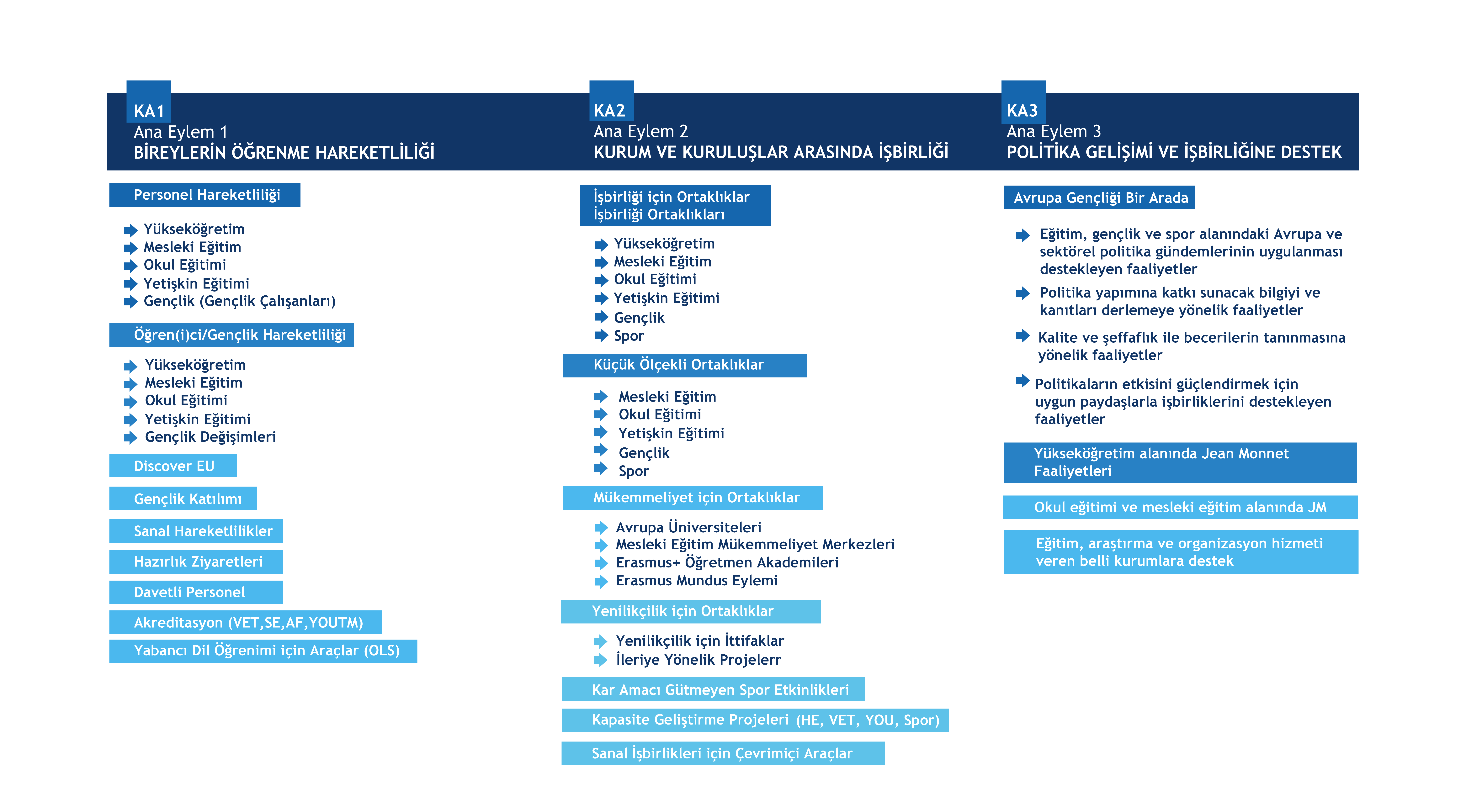
In the scope of the Erasmus+ Programme, there are “decentralised” and “centralised” activities.
- Decentralised Projects: Applications are made to the Turkish National Agency.
- Centralised Projects: Applications are made to the Education, Audio-Visual Culture Executive Agency of the European Commission in Brussels.
Current calls for proposals for all centralised calls can be accessed from the Education, Audio-Visual and Culture Executive Agency’s web-site .
Would you like to learn more?
The European Commission manages and implements the Programme through the National Agencies and the Education, Audiovisual and Culture Executive Agency. The Erasmus+ Programme is coordinated by the Turkish National Agency in Türkiye.
You can use the following platforms to start your Erasmus+ journey and establish partnerships.
You can reach up-to-date news about Erasmus+ on the Turkish National Agency web-site.
Erasmus+ Programme Year 2023 Guide
Erasmus+ Programme Regulation of Period 2021-2027
You can find the brochure of the Programme here.
Follow Us on Social Media!
HORIZON EUROPE
What is Horizon Europe?
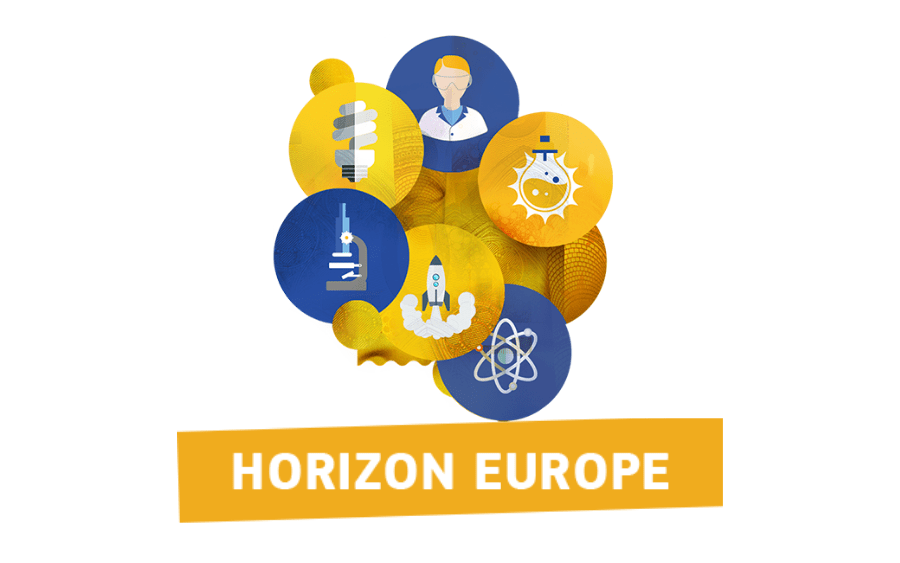
With Horizon Europe, which is the 9th Framework Programme of the European Union (EU), it is aimed to support science and innovation activities with a budget of 95.5 billion € between 2021-2027.
EU encourages all research activities in line with the Union’s objectives in order to strengthen the scientific and technological basis of the EU and increase its competitiveness by creating a European research area where researchers, scientific information and technology can circulate freely. This encouragement mechanism has been carried out with multi-year R&D and innovation financial support created through framework programs since 1984. Türkiye has been participating in multi-annual framework programs carried out in the field of R&D and Innovation since 2002.
Türkiye’s Participation in the Programme
Starting from the 6th Framework Program (FP), Turkey has participated in the EU’s framework programs in the field of science and research. Most recently, Türkiye has participated in the Horizon Europe Programme known as the 9th FP, which is being carried out in the period of 2021-2027, in accordance with the participation agreement signed on 27 October 2021 and entered into force after its publication in the Official Gazette on November 16th, 2021.
Horizon Europe Programme is coordinated by the Scientific and Technological Research Council of Türkiye (TUBITAK) in our country.
Targets of the Horizon Europe Programme
- Strengthening the European Union scientifically and technologically,
- Increasing Europe’s innovation capacity, competitiveness and employment, meeting community priorities,
- Maintaining the socio-economic model and values of Europe.
The structure of the Horizon Europe Programme is as below. You can find the details of the program structure at “www.ufukavrupa.org.tr” web-site.

Within the scope of Horizon Europe Programme, missions have been created by the European Commission in order to better introduce the work programs to the society and to evaluate them within more measurable targets. Missions aim to provide solutions to some of the challenges we face, within a specific budget and time.
5 Missions of the Horizon Europe Programme Determined by the Commission
- Cancer Mission: Conquering Cancer: Mission Possible
- Climate Change Mission: Accelerating the Transition to a Climate Prepared and Resilient Europe
- Oceans and Waters Mission: Regenerating our Ocean and Waters
- Climate Neutral and Smart Cities Mission: 100 Climate-Neutral Cities by 2030 – by and for the Citizens
- Soil Health and Food Mission: Caring for Soil is Caring for Life
Who Can Apply to the Horizon Europe?
Any natural or legal person (SMEs, industrial organizations, research centers, universities, public institutions, non-profit organizations) that is operationally and financially eligible to perform the R&D tasks specified in the proposed project can apply to the Horizon Europe Programme.
While most of the programme consists of areas where at least three different organizations support multi-partner actions, there are calls for single beneficiary project proposals from institutions that can be applied alone such as Frontier Research Grants, Marie Sklodowska-Curie International Scholarships and Research Grants, awards, European Innovation Council.
Would you like to learn more?
Call proposals related to clusters, areas and missions under Horizon Europe components are accessible on the Funds and Tenders Portal.
All documents related to the Horizon Europe Programme are accessible on the Funds and Tenders Portal.
Click here to access the official website of TÜBİTAK Horizon Europe Programme.


